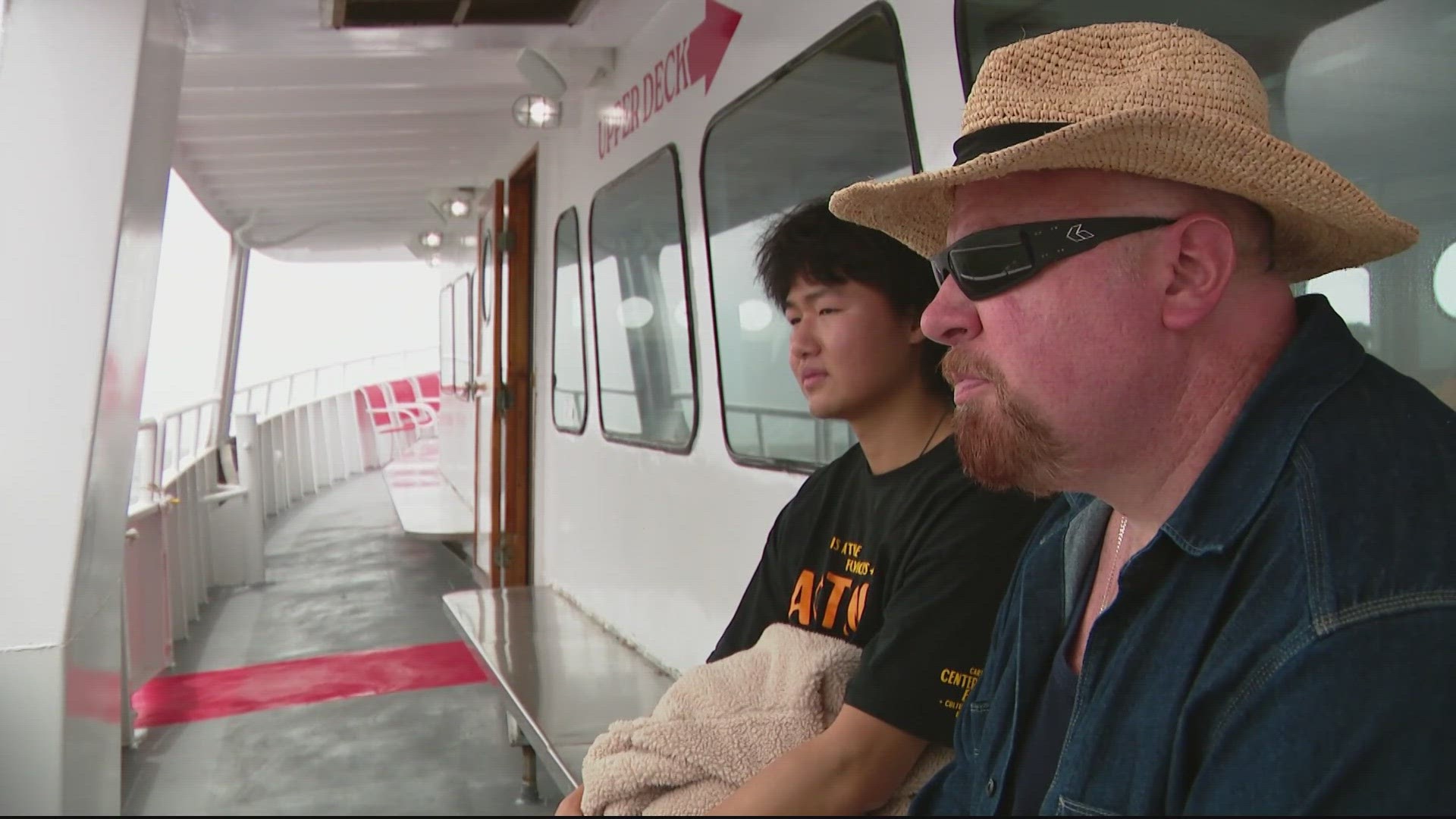VIRGINIA, USA — Tangier Island sits in the middle of the Chesapeake Bay between the Eastern Shore and the Northern Neck of Virginia, accessible only by boat or a small plane. Everyone knows everyone, cars are replaced by golf carts and bikes, a unique dialect is spoken and being on the water is a way of life.
"People out here are the watermen and they're pretty self-reliant, but this issue of the erosion is something bigger than we can handle on our own," said James Eskridge, better known as Ooker.
Eskridge is Tangier-born and raised, with a long family history on the island.
"My father, my grandfather, my great-grandfather were all crabbers," he said.
More than a crabber, he's also been the town’s mayor for the past 15 years.
"It would be unthinkable just to abandon this and start over somewhere," Eskridge said.
But for the residents of Tangier, it's a race against Mother Nature.
Coastal erosion is one part of the equation, sea level rise is another. Whether it's a nor'easter or tropical storm, four to five times a year more and more of the island gets inundated.
Since 1850, Tangier Island has lost two-thirds of its landmass and surrounding neighbors.
"I've seen islands disappear, some islands around Tangier," Eskridge said. "We've lost about six or seven other smaller communities that used to be around Tangier. They're just underwater now. They had no means to get protection for their community, so they just abandoned their community, and they're just underwater now. So that's what we don't want to happen here."
David Schulte, an oceanographer for the United States Army Corps of Engineers, has been studying Tangier Island for the past 21 years.
"I've seen the island change a lot," Schulte said. "A lot of land that I walked on on that first trip is now in the water. Most of the trees have died. There's more flooding."
In the 1970s, Tangier was home to around 1,200 islanders. Now just under 400 remain, and Schulte predicts that by 2053, residents will no longer be able to live on Tangier.
"Every year there's going to be less habitable land and fewer people on it," Schulte said.
Schulte's most recent report was written with a special co-author -- his son Zehao, who was a high school senior when the peer-review journal was published.
"It was me in the bean bag, him in the chair, discussing what should we include," Zehao Schulte said. "Staring at the map of Tangier for hours and hours on end."
The father-son duo had a specific focus on the rate at which uplands are becoming wetlands.
"Right now, one leg is standing on wetland and another leg is standing upland, and if you keep going the soil becomes mushier and mushier until you get to here where it's just swamp," Zehao demonstrated.
To help save and restore the island, more seawalls need to be built, similar to the jetty constructed on the western side of Tangier by the Army Corps of Engineers back in 1989.
"We were losing 25 - 30 feet of seawall there each year," Eskridge said. "We haven't lost an inch since then. So it works"
While seawalls would slow down erosion, they don’t combat sea level rise. Scientists hope to one day elevate the island with dredging material -- a practice already proven successful at Tangier’s neighboring Port Isobel Island.
The solutions are clear, but the cost is high. It would take an estimated $250-$350 million to save Tangier.
"The federal government saving Tangier Island, it's like a message saying that no matter how big you are or how small you are, we're in this together and we're not going to abandon each other in this global crisis," Zehao said.
Virginia Senators Tim Kaine and Mark Warner have secured $500,000 for the U.S. Army Corps of Engineers to continue planning restoration efforts, including obtaining necessary environmental authorizations to hopefully someday build seawalls and dredging material to build up the island.

